Yukun’s foreign player Burcă: Facing new challenges head-on, aiming to successfully address three questions
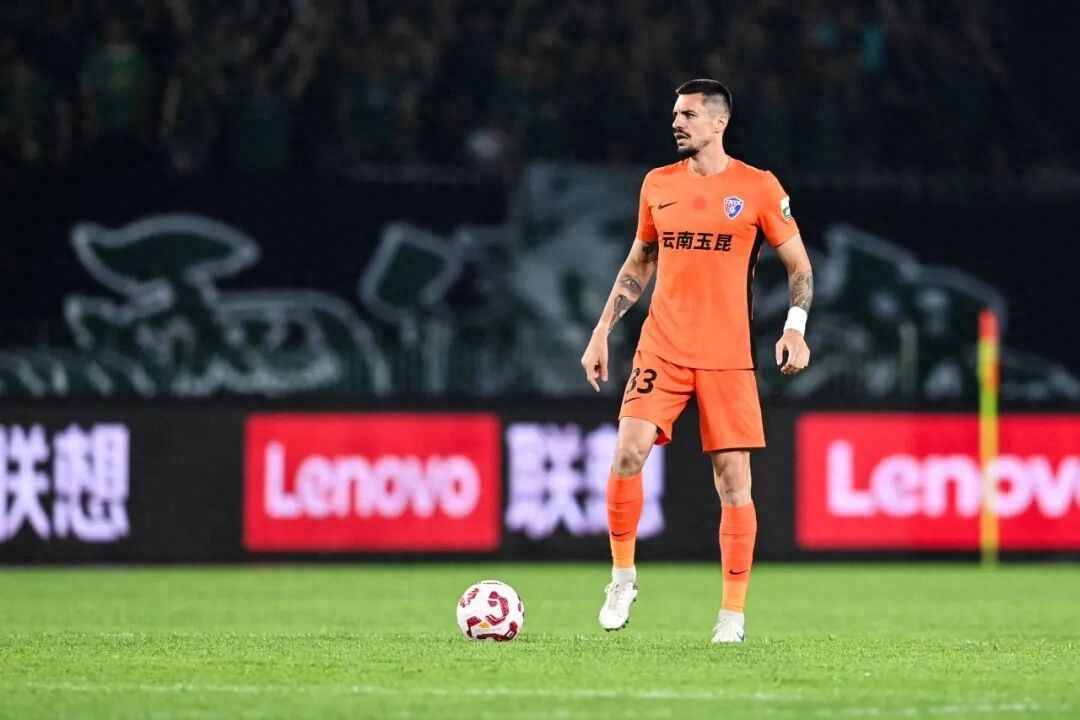
Written by Zuo Rui Romanian international defender Andrei Burcă is among the top foreign center-backs in the Chinese Super League in terms of both reputation and ability. Yunnan Yukun, who brought him in, has great expectations, but even Burcă probably did not foresee such a rocky beginning in the CSL. As the league’s most valuable defensive player, he has endured setbacks like a losing debut, injury layoffs, and red card penalties. In a recent exclusive interview with our paper, Burcă shared his initial experience in the CSL, calling it “a completely different challenge.” At the same time, we posed three questions to him: “Can Yukun’s defense achieve a clean sheet and improve further? Will the Romanian national team return to the World Cup stage? Can he play until 39 like his idol Chiellini?”

Burcă’s CSL journey started with difficulties. Joining Yunnan Yukun during the summer transfer window, his debut was against Zhejiang, where fellow Romanian Mitriță scored twice to secure a 3-1 win for Zhejiang Greentown. Burcă played the entire match but had to accept the 1-3 loss helplessly. In the next game against Shenzhen, although Yukun won 3-1, Burcă was substituted before the end due to an ankle injury. He then missed two consecutive rounds against Shenhua at home and Hainiu away. During this period, the injury-plagued Yukun conceded 9 goals. In the 21st round at home, Burcă played the full 90 minutes as the team narrowly defeated Wuhan Three Towns 2-1. Unknown to many, he was still recovering from ankle and recurring knee injuries but fought through the pain until the final whistle, determined to win.
In his first month at Yukun, Burcă appeared three times in the league, with the team winning twice and losing once, plus two rounds missed due to injury. However, on August 20 in the FA Cup semi-final, Burcă became the “red man.” Playing away against Beijing, in the 26th minute, Guoan striker Fabio pushed Burcă from behind to score the opening goal. Five minutes later, Burcă fouled Fabio from behind and received a red card. Yukun collapsed afterwards, suffering a humiliating 0-7 defeat. The nightmare unfolded within five minutes from conceding to being sent off, leaving Burcă feeling frustrated. That night, the club announced that Burcă’s “reckless behavior severely harmed the club’s interests and image,” fining him 100,000 yuan. Two days later, the Chinese Football Association issued a statement citing “violent conduct off the ball,” suspending him for three matches and fining 15,000 yuan. This was the harshest and most expensive punishment in the club’s history, handed to a foreign player highly anticipated by both team and fans.
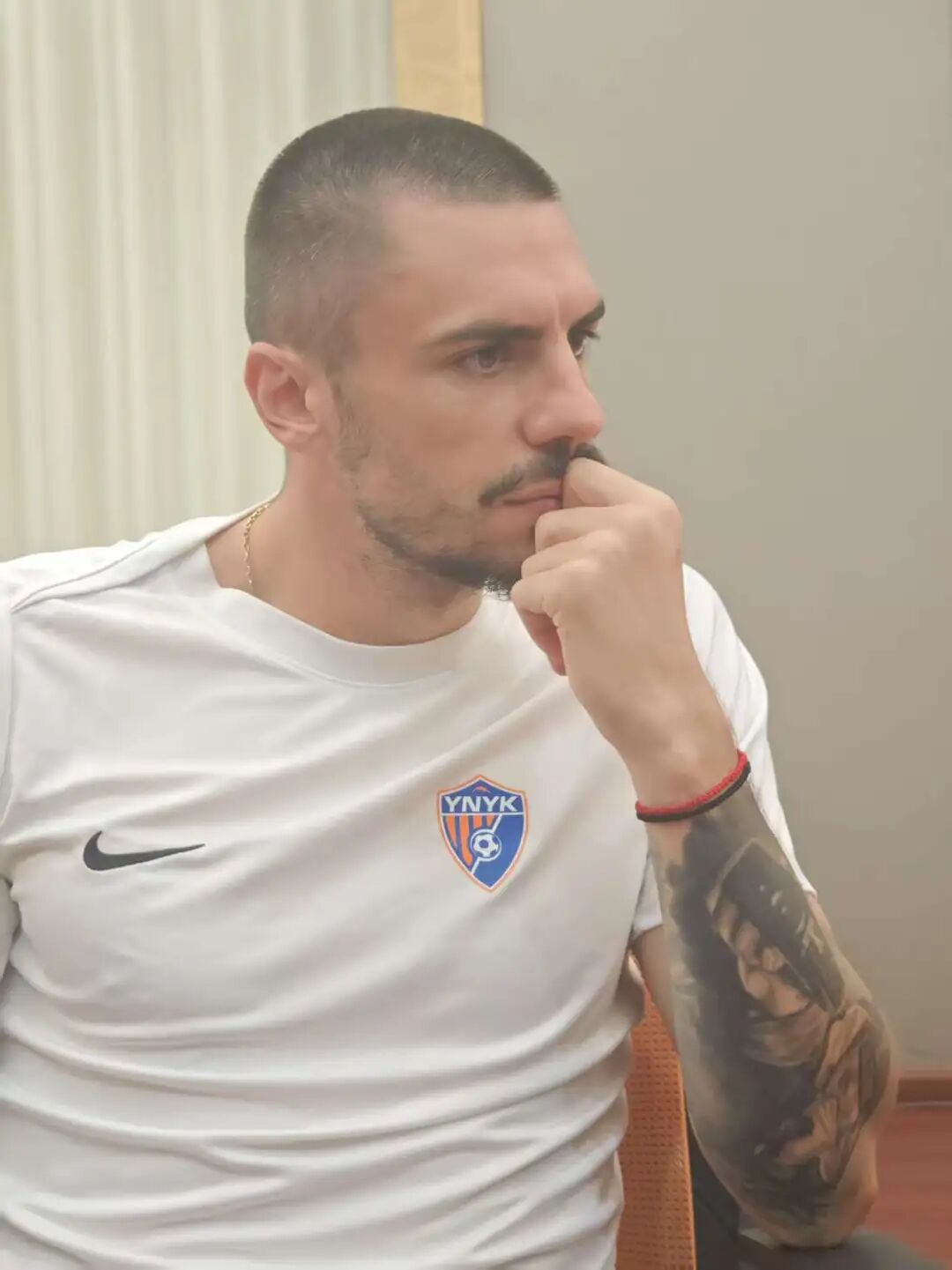
Over a month later, during an interview at the club, Burcă had calmed down. He admitted that the red card’s cost was far heavier than the two he had received while playing for Cluj and Akhmat Grozny—his only two prior red cards.
“In the match against Beijing Guoan, I personally felt Fabio’s first goal was preceded by a foul, but the referee didn’t call it. My subsequent action did cause a foul, but I thought the punishment was too severe.” Burcă frowned, clearly having reflected deeply on it. “I will be more cautious when making tackles in the future. This lesson helped me understand that CSL’s refereeing standards and playing style are completely different from Europe.”
On September 19, in the home game against Dalian Pro, Burcă made his return after suspension. Besides focusing on defense, he repeatedly joined attacks, including corner routines and long-range shots. “I really want to show a more complete and better version of myself,” he said. The 1-1 draw was disappointing for investors, players, club staff, and fans alike. “Of course, we want to earn as many points and wins as possible.”
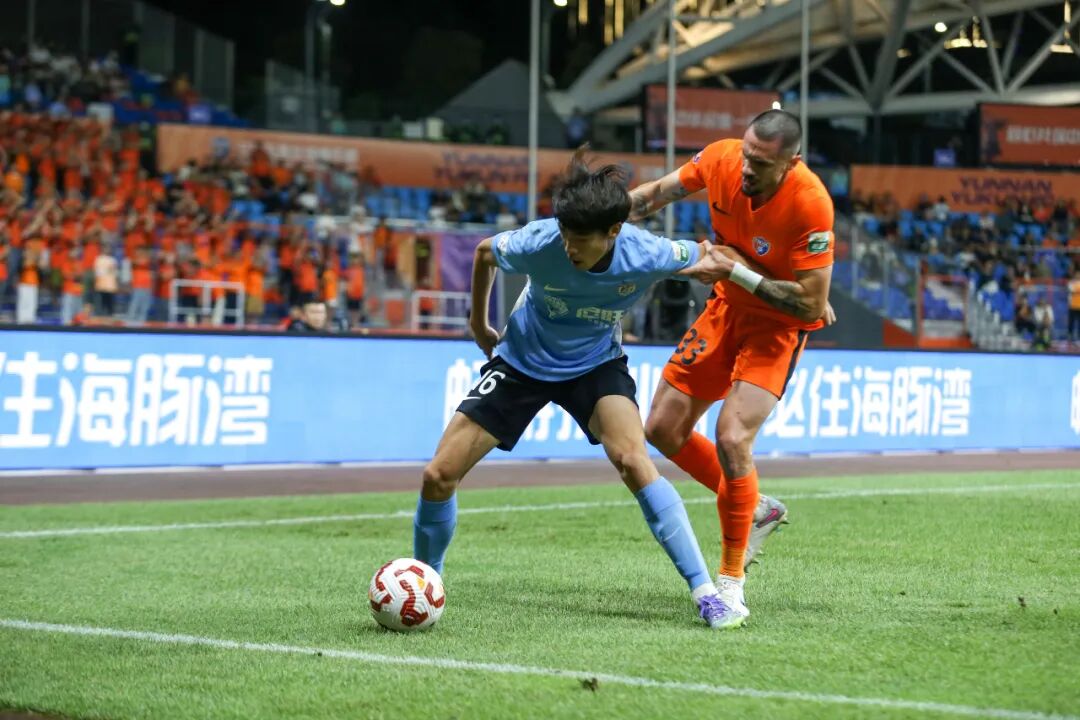
On October 4, in an away match against Shandong Taishan, Burcă led a five-defender formation and anchored the last line of defense under Ma Zhen’s command. The 1-1 scoreline belied the intensity of the contest. In Jinan, Burcă’s aerial ability, physical duels, passing skills, and leadership were displayed more fully, though he did not consider his performance flawless: “As a defender, my primary goal is always to keep a clean sheet. To defend better and, on that basis, win matches.”
In his previous six clubs, including the Romanian national team, Burcă has scored goals, mostly from penalties and attacking set pieces. At Yunnan Yukun, he naturally wants to score as well, but “the most important thing is to help the team keep a clean sheet.” Regarding his reduced playing time in the CSL, he explained that injuries and the red card affected his appearances. “Getting injured in the Shenzhen game was truly an accident.”
For the well-established Burcă, the China experience remains challenging. So far, every league match he has played for Yukun has seen the team concede goals. “Every league has its own basic tactics and characteristics. You can never find the same style, level, and background as in previous leagues when playing in another country. I consider the CSL a completely different challenge. Joining Yukun is a new life journey, and I really want to prove myself here.”
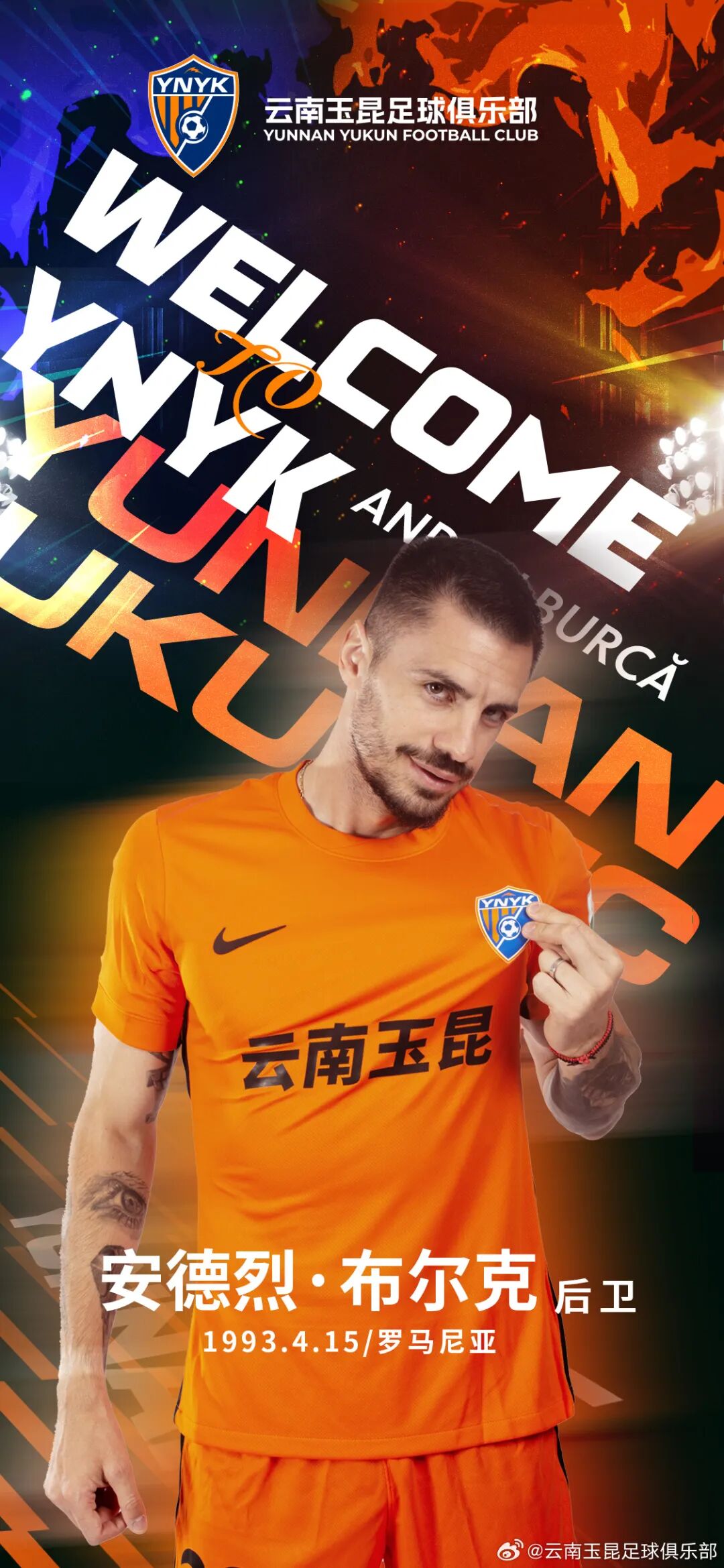

After three months in Yuxi, Burcă has played seven matches for Yunnan Yukun. He feels fully integrated into the new team both on and off the pitch. “I have completely adapted to our club, including head coach Anderson’s tactical system. I really enjoy life here and have blended into this city. Even the external environment and people make me feel very comfortable. Everyone treats me well. Yuxi is beautiful, and I’m very accustomed to living here.”
At Cluj, Burcă was briefly teammates with Ioniță, though they never shared the pitch simultaneously. Now reunited abroad, the feeling of “old friends in a foreign land” is especially warm. “It’s rare to meet a teammate from the same country who speaks the same language in distant China, especially since we had a brief overlap in Romania,” he said. Their private relationship is very good: “We often visit each other’s homes and go out to enjoy Yuxi’s cuisine together.”
Before coming to China, Burcă learned about the CSL’s basics through Ioniță. “He told me that the CSL once favored big-money signings and still has some strong foreign players. After experiencing it myself, I think the intensity and quality of CSL matches are still higher compared to the Romanian, Saudi, and UAE leagues.”
Compared to the precocious Ioniță, Burcă spent many years in lower leagues, only reaching top-tier football at 23 and leaving Romania after turning 30 to play a season each in Saudi Arabia’s Akhmat and UAE’s Baniyas. Upon receiving Yukun’s offer, he immediately contacted Ioniță and learned that this new CSL club from Yunnan “has ambitious goals,” and he wanted to “achieve those goals together with Yukun.”
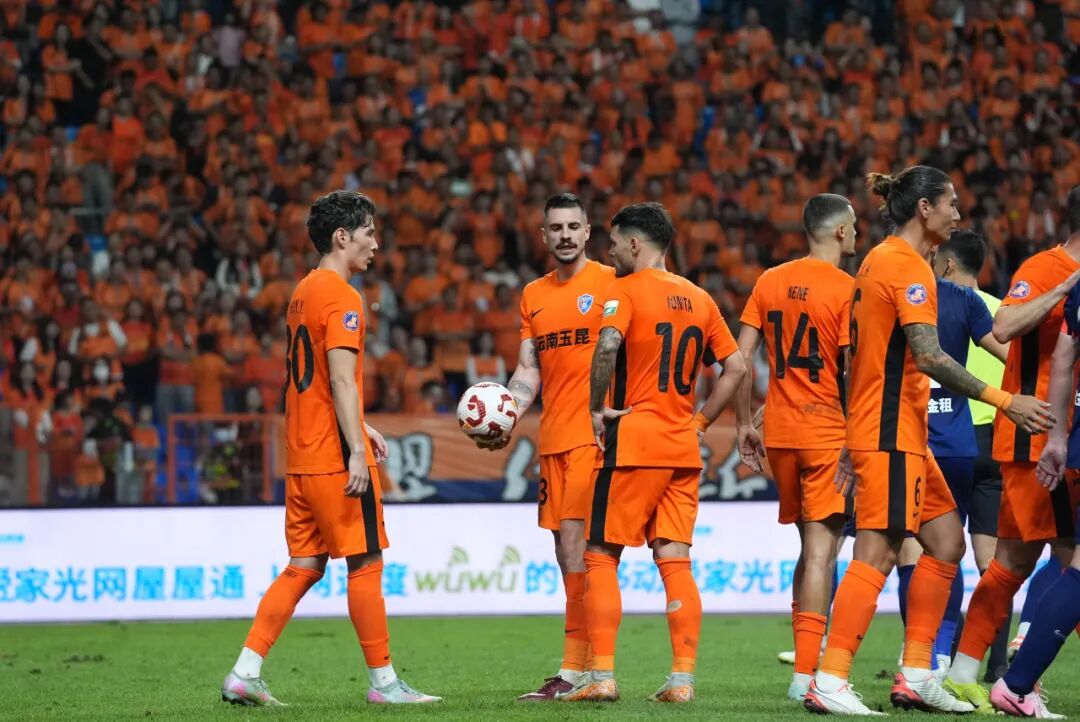
“Although we have secured safety from relegation, I knew before coming to Yuxi that this club has bigger ambitions for this season and the next,” he said. That’s why he chose Yuxi: “I want to help the team achieve better results and do my best to elevate the team’s overall strength.” Having played in different environments and tougher competitions, Burcă believes his experience can better assist the club. “I enjoy communicating with teammates. On the field, I like to direct them to win matches together. As long as the team executes the coach’s tactics well and maintains good communication, we can defeat any opponent.”
Burcă’s first CSL season with Yukun is nearing its end. Although relegation has been avoided, Yukun will continue to fight for a higher ranking, with the hard-fought 1-1 away draw against Taishan as a prime example. “The team atmosphere, both in training and daily life, is very good. Here, I have the respect of all teammates who are happy to help me,” he said. “Of course, I reciprocate.”
The club’s staff also deeply moved him. “I spend almost all day with everyone. They are very enthusiastic, like me, and respect me a lot. This includes all staff — fitness coaches, doctors… everyone is great. I also really enjoy being with everyone and appreciate this work and living environment.”
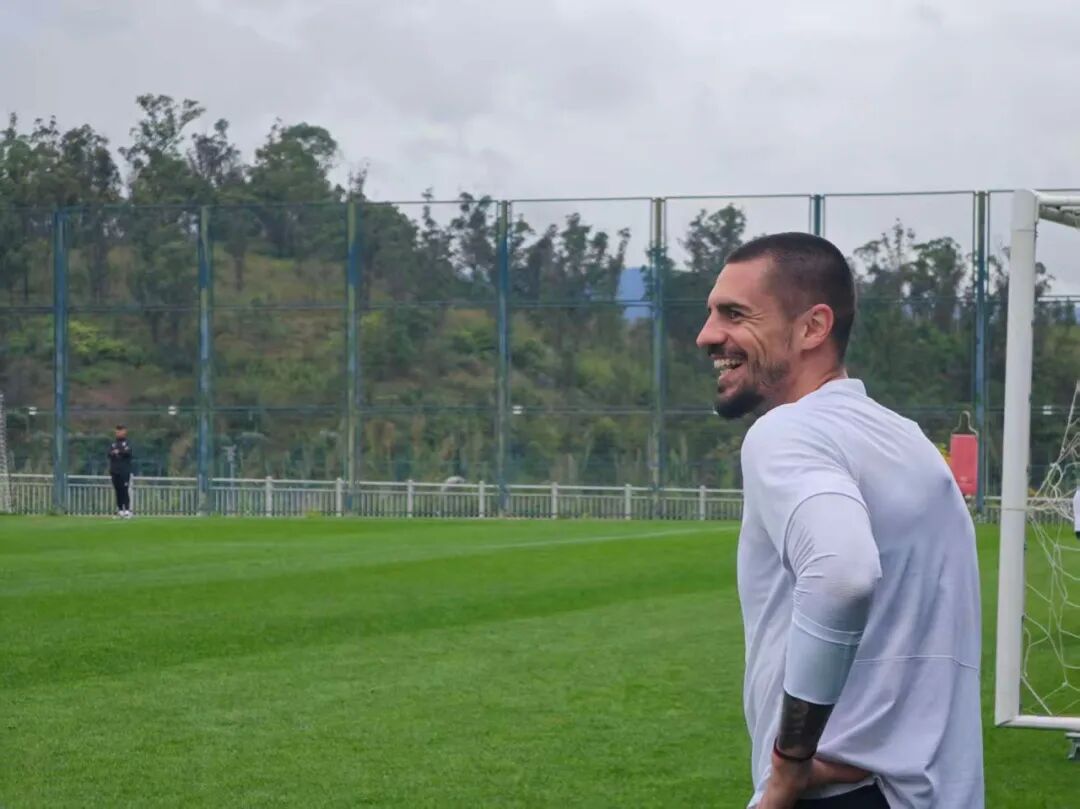
In Burcă’s view, since everyone shares the same goal of winning more matches, all must strive for the common objective. Everyone on the field must firmly execute tactical plans, fulfill their roles, and support each other. “Even if we do all these things well, we might not get good results in every game. But if we keep doing them consistently in future matches, we will definitely succeed.”
After leaving the team and spending time at home with his wife, he just wants a peaceful life. “Taking walks nearby and eating good food—that’s the life I want,” he added. “Of course, we also want to meet more people and socialize more with friends.” To make his career smoother, following advice from Chinese friends, he is planning to move houses soon. The reason is the Eastern “mysticism” belief that residences with numbers containing ‘4’ might be unlucky.
It is understood that Burcă got married just before joining Yukun, and his wife stayed in Yuxi for a while. “For now, it’s easier for me to fly back to Europe for national team matches and to visit home. It’s relatively difficult for her to come to China alone.” To better resolve their long-distance marriage, “we will seriously plan to have a baby in China in the near future.”


Since embarking on his professional football career, Burcă has been a steady challenger. Constantly pushing himself, he started from the fourth division and gradually became a national team regular.
Although right-footed, to play as a full-back, he idolized Brazilian Roberto Carlos and practiced his left foot extensively. After six years as a full-back and later switching positions, this experience gave him balanced two-foot passing and tackling skills, which is one of his appreciated strengths.
At 17, Burcă joined his hometown club, Bacău Aerostar, a third-tier team with two squads. The young Burcă was placed in the B team playing in the fourth tier. To get more playing time, he complied and even filled in as a center-back, a position he was unfamiliar with. His first time playing center-back resulted in two headed goals, prompting the coach to say, “Alright, Andrei, you’ve found your position!”
Afterward, the high schooler returned to the A team as a center-back to compete in the third tier. Accumulating 87 appearances in Liga III, at 20 he transferred to the local club Bacău SC, making his debut in the second tier there.
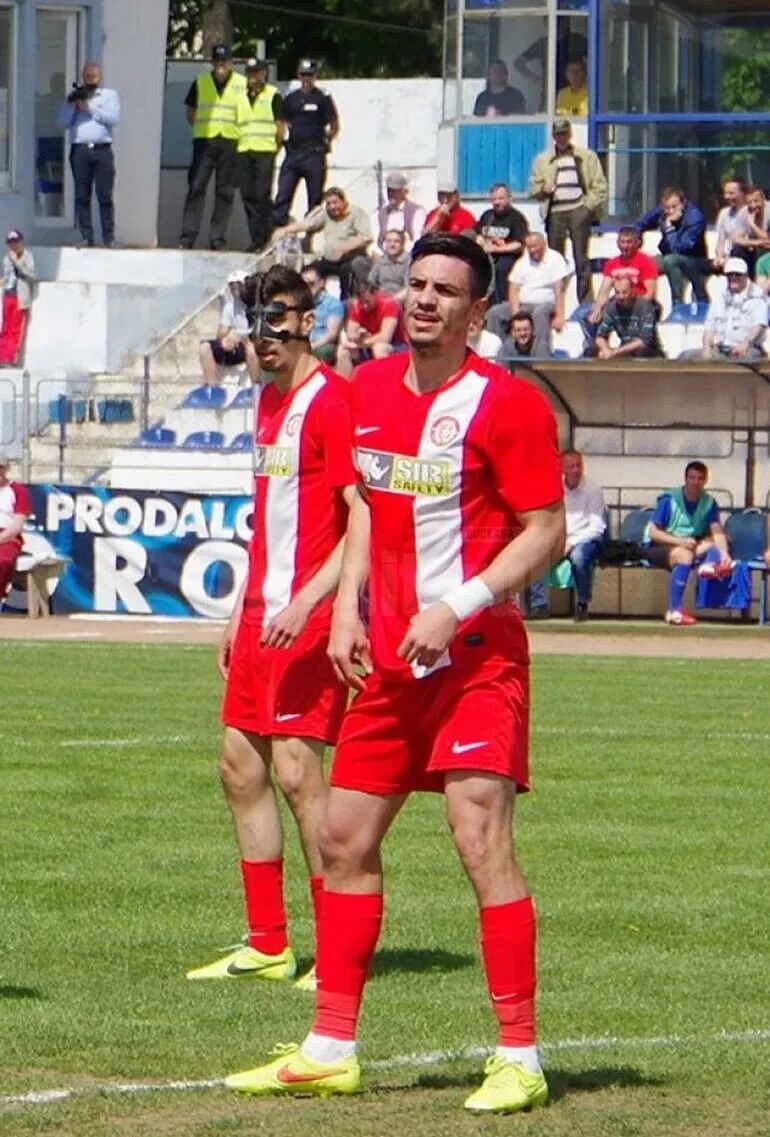
The first two seasons in Liga II went “fairly well,” though earnings were low and barely covered living expenses. By the third season, Bacău SC, long overdue in wages, announced it would only use unpaid players. Burcă had to “rely on parental support to survive.” All voluntarily staying players, including him, aimed to reach the promotion playoffs to prove their worth. But the passionate group’s fate was “all too familiar”: due to severe financial issues, the Liga II championship was revoked, and the club dissolved.
After gaining fame, Burcă revealed some inside information on a TV show: then-mayor Necula controlled the club’s finances and declared he no longer needed football. Players could have received eight months’ wages and bonuses, but the club chairman told them that to break their contracts, they had to forfeit all owed payments.
Having given up unpaid wages and gained free-agent status, Burcă was close to signing with Liga II club Foresta Suceava. After a week’s trial and just five minutes before signing, a phone call changed his fate. A former coach warned him not to sign because top-tier club Botoșani wanted him. Although playing in Liga II would pay more, he preferred to try top-tier football, even if Botoșani offered only a six-month short-term contract with modest pay.
Due to long-term financial struggles playing football, Burcă prepared two plans: either quit football completely and study engineering at Bucharest Polytechnic to pursue another career with a degree, or pause his studies temporarily and continue playing another half-year to see if he could make a living from football.
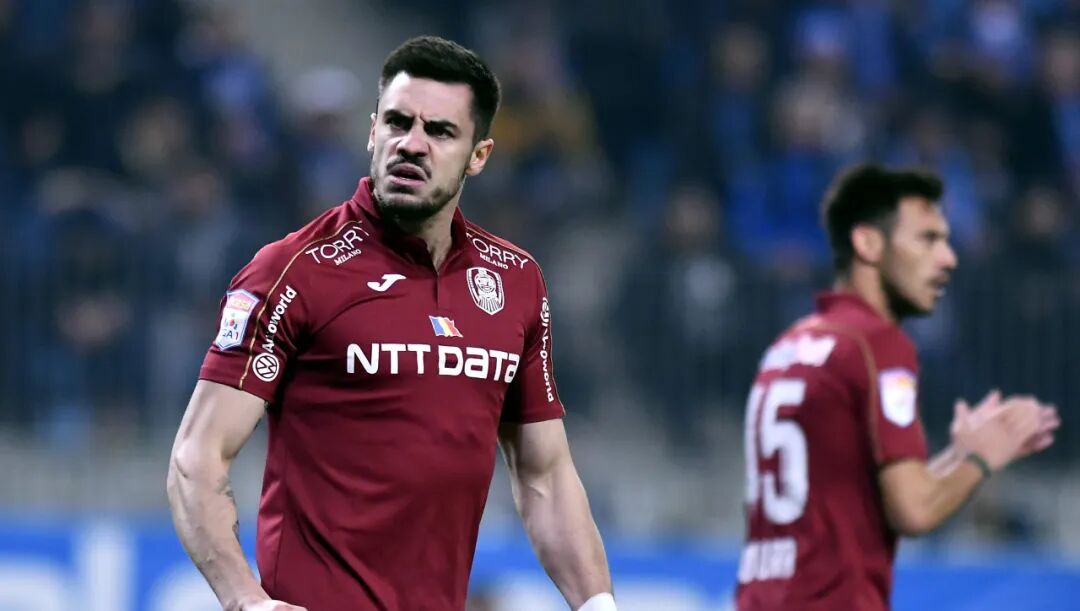
“I always believed in myself; it was fate’s arrangement. Maybe I should have stayed longer in Liga II, but I seized the chance to play in the top league.” Half a year later, he secured a formal contract with Botoșani, stabilizing his football career with steady and decent returns.
After his three-year contract ended, with 104 Liga I appearances, Burcă joined Cluj. From starter to captain, he won three consecutive league titles and played full matches in all eight Champions League qualifiers and subsequent eight Europa League games. Through European competition, this strong center-back quickly adapted to and grew fond of the “more intense, aggressive, and masculine” style of play.
While at Cluj, 27-year-old Burcă was called up to the Romanian national team. “It proves that despite life’s hardships, through hard work and sacrifice, one can achieve success.” That year, he understood sacrifice meant focusing entirely on work and football. “If you want results, you can’t waste even a single night.” He realized early that talent alone isn’t enough: “As a kid, I had no summer camps, outings, or holidays. I couldn’t go to parties on weekends. My life was strict and orderly, but I don’t regret it.”
At 30, Burcă became a regular starter for the national team. In the 2023 European Championship qualifiers and the tournament the following year, he started all 14 matches, helping Romania reach the finals and top their group. His most recent national appearance was on October 13 in a narrow 1-0 home win over Austria in World Cup qualifiers, where he played the full match.
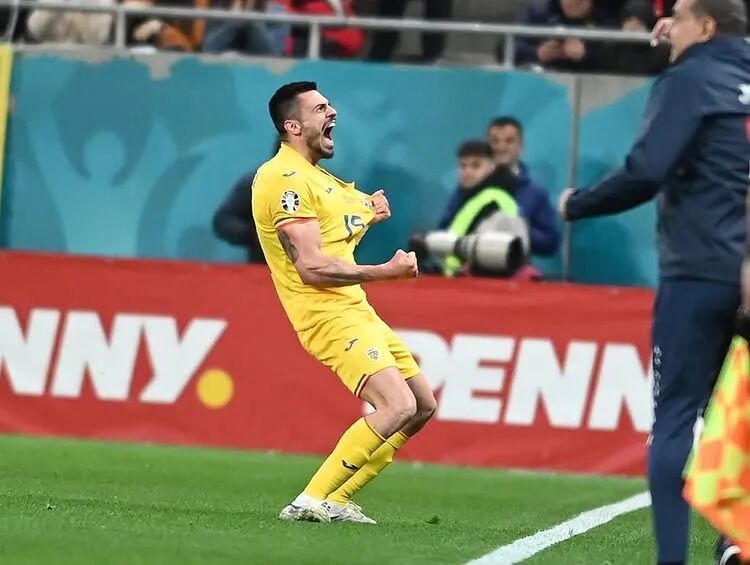

After six rounds of World Cup European qualifiers, Romania ranks third in Group H, five points behind Austria and two behind Bosnia and Herzegovina. However, as winners of UEFA Nations League Group C, they still have a good chance to qualify via the playoffs. Burcă revealed: “Our national team’s goal is to do everything possible to reach the World Cup finals.”
In September, Mitriță, who did not play a minute in Romania’s 2-2 draw away to Cyprus, recently returned to Hangzhou and announced via social media his retirement from the national team to focus on club football. Burcă declined to comment: “We can only accept his decision. Whatever it is, as long as Mitriță thinks it’s best for himself, it should be fine.”
For Romania, returning to the World Cup finals is a tough task. Their last appearance was in France 1998, a distant memory. To pursue this goal, Burcă still travels between Europe and China. After the October match against Austria, Romania will face San Marino in November, close in timing to Yunnan Yukun’s home game against Tianjin and away match versus Henan. “When I played in West Asia over the past two years, I did the same. But coming to China involves longer distances, bigger time differences, and longer flights, adding challenges. I’m happy to accept them. Helping my national team and club improve competitiveness is also my goal.” Maintaining good recovery and enough sleep helps him train harder, “that’s all I can do now.”
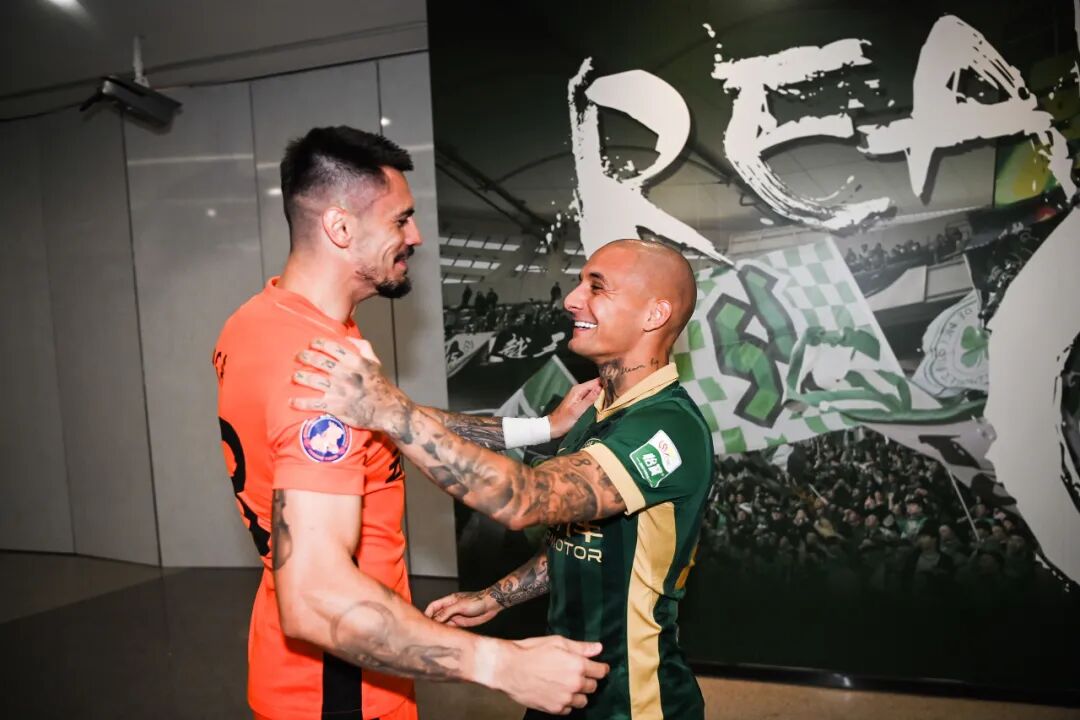
Burcă already feels pressure from newcomers in the national team. “Transition is part of football. Wherever you play, new players always challenge veterans. But I want to say I will work harder in training and matches to keep my place.”
At 32, how much longer can Burcă contribute to Romania and Yunnan Yukun? He confidently said: “I feel very good now, in excellent physical condition, and want to extend my career as long as possible, playing more matches. Of course, all this depends on having ambitious goals worth fighting for.”
Burcă has top players he looks up to. “Chiellini is my idol, my role model, and source of motivation. He retired at 39, and that’s my goal too. Ramos and Pepe are top center-backs, but to me, Chiellini is the world’s best and most complete defender.” He said modern football requires center-backs to join attacks and organize, even assist or score, “but I want to be like Chiellini or Bonucci: first, defend well and keep a clean sheet, then think about other things.”
Though occasionally impulsive on the field, Burcă remains humble when reviewing matches and rarely feels his individual performance meets his expectations. “I think I have a lot of work to do. Whenever I watch replays, I always spot mistakes.”
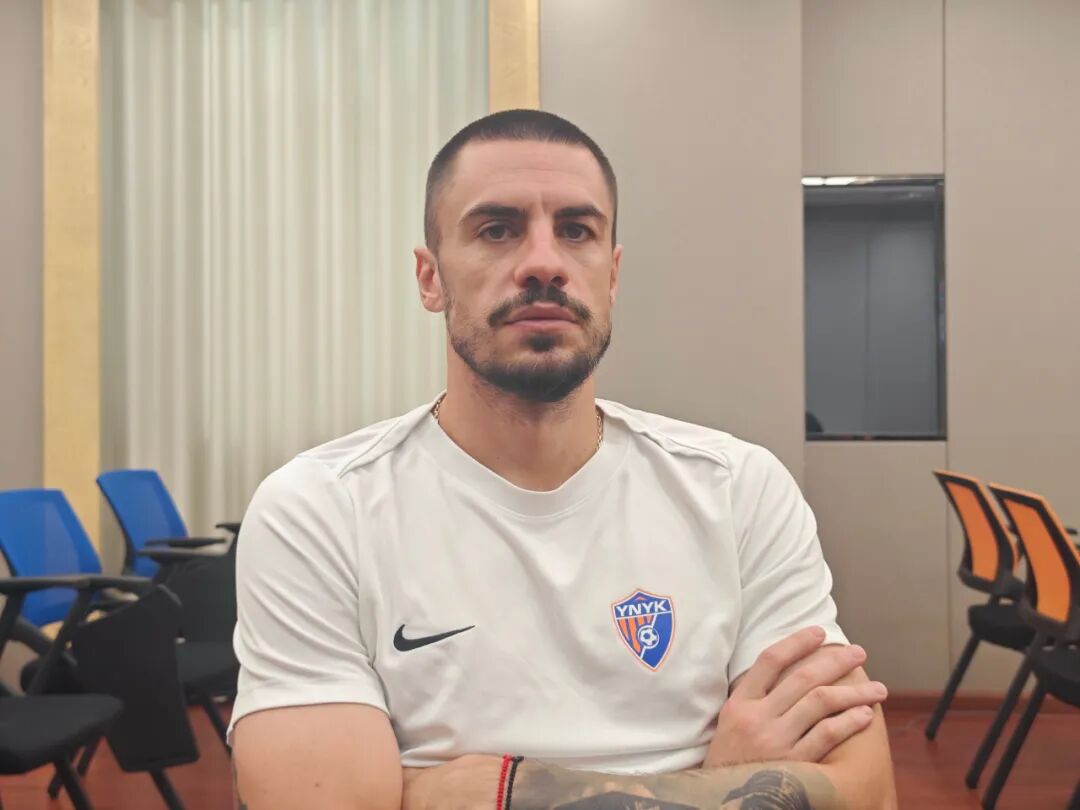
Finding goals is easy, executing plans is hard. This explains why many people who read Confucius’ Analects never become sages, and why many who love football or basketball cannot advance further. “My plan is to train hard every day, always aiming to improve. Whether training or matches, I enjoy the football process.”
For Burcă, routine training on the pitch is never enough, no matter how many times per week. “The body needs comprehensive training; I must do an hour and a half of personal training daily.” In Yukun’s gym, full-back Dilimulati is Burcă’s workout partner. Once, Dilimulati joked, “You treat me like a free fitness coach. This won’t do, Di, when are you going to pay me for lessons?”
“My life is simple: focused on football, training, and matches. I hope to extend my career as long as Chiellini did.” Outside routine and extra training, Burcă enjoys reading. “Books help me concentrate and block out distractions.”
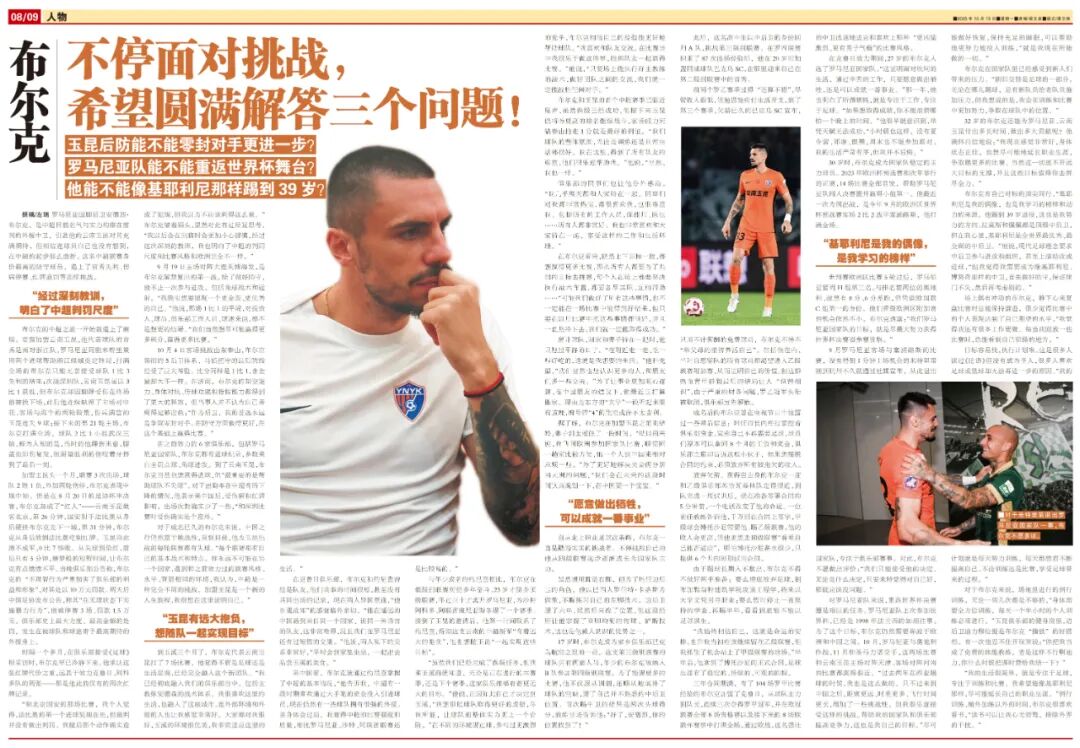


Wonderfulshortvideo
User PlaymakerHub has posted a video.








 Links
Links
 Contact
Contact
 App
App


